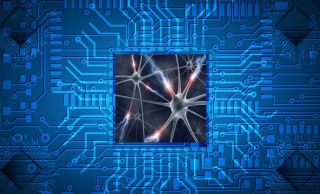
Neuroscience
Why Does the Most Complex Device in the Universe Epically Fail at Math?
The inherent flaws and bugs of the organ calling all the shots.
Posted July 14, 2012
The human brain is the most sophisticated computational device in the known universe, but it is not particularly well equipped for many of the tasks we require of it in the modern world. Let’s start with an obvious example. Despite what you may have heard about people who can mentally generate prime numbers or memorize the first 10,000 digits of pi, no human will ever be able to divide 6 digit numbers in his head with the speed and precision your smartphone calculator. To put it bluntly: we suck at numerical calculations.
The human brain is vastly better than digital computers (for now) at recognizing faces, catching a football, understanding speech, or composing a symphony. So why do we fail epically at long division? The typical answer is that we did not evolve to manipulate numbers. This is true. For our ancestors it was much more important to recognize patterns than perform long division—distinguishing a pile of branches from a bunch of snakes was a much more valuable survival skill than determining the snake per person quotient.

The building blocks of brains and computers determine what tasks they are well- or ill-suited to perform.
I would argue, however, that even if there had been evolutionary pressure to perform accurate numerical calculations the brain of any animal on the planet would still fail at math because the building blocks of brains are simply ill—suited for numerical manipulations. Your brain is built of approximately 100 billion neurons, and as computational elements go neurons are highly extroverted. While each transistor in the CPU of your laptop might communicate with a dozen others, each neuron communicates with thousands of others. The result is a massively intertwined neural web with an enormous amount of crosstalk. The results of this crosstalk—more specifically a phenomenon termed priming—is that if I say cat you think of dog, if I say 12 you may think of a dozen. Every concept you think of unconsciously and automatically activates associated concepts. But one does not want a calculator to “think” of anything but the number you just typed in—each discrete number should remain quarantined from the other numbers, but in the brain, at some level, everything influences everything else.
The highly interconnected nature of the brain’s computational units make it perfectly suited to implement parallel computations. But most numerical calculations do not benefit from parallel computations because they are iterative in nature: the second step requires the results of the first step, and the third of the second, and so forth. Long division might require hundreds of discrete iterative steps. The serial architecture and discrete encoding of digital computers are perfectly suited for this task, and no computer scientist would use the parallel, analog—like encoding, and lava—like speed of neurons to build a calculator.
The Serious Brain Bugs
Fortunately, in the grand scheme of things the brain’s ineptitude for numerical calculations is a minor inconvenience—particularly since we figured out how to build digital computers. The real problem is that the human brain is also ill—equipped to perform many of the computations and decisions that govern our lives as individuals and as members of society. Consider that our memory can be unreliable and biased, which at best leads us to forget names, but at worse results in innocent people spending their lives in prison as a result of faulty eyewitnesses testimony. Consider the ease with which our habits, desires, and opinions are continuously shaped by marketing—a fact that contributed to the 100 million cigarette related deaths in the 20th century. Our decisions are influenced by a host of arbitrary and irrelevant factors; for example, studies show that it is possible to predict election results with approximately 70% accuracy by simply showing subjects pictures of the candidates. And let’s not forget that we are temporally myopic. Presumably for evolutionary and neural hardware reasons the human brain was not designed to properly balance trade-offs between short and long-term benefits. Not only do we struggle to save for retirement, but the current financial predicament in Europe and the United States nicely demonstrates that individuals and nations alike prefer to avoid relatively small short-term sacrifices by borrowing, more often then not resulting in large sacrifices or catastrophic consequences in the future.
Sure, we do carry around the most complex device in the known universe in our skulls. But to what degree are we aware of the brains inherent biases and limitations? Until we recognize and understand the brains flaws we will continue to make faulty decisions in our personal and societal roles. And if there is a single limitation that makes it hard to see this, it is that the brain confronts enormous barriers in the attempt to understand itself. This limitation is so profound that the vast majority of people on the planet do not even acknowledge that it is their physical brain, and not a metaphysical soul, that is solely responsible for every decision we make and every feeling we experience.

